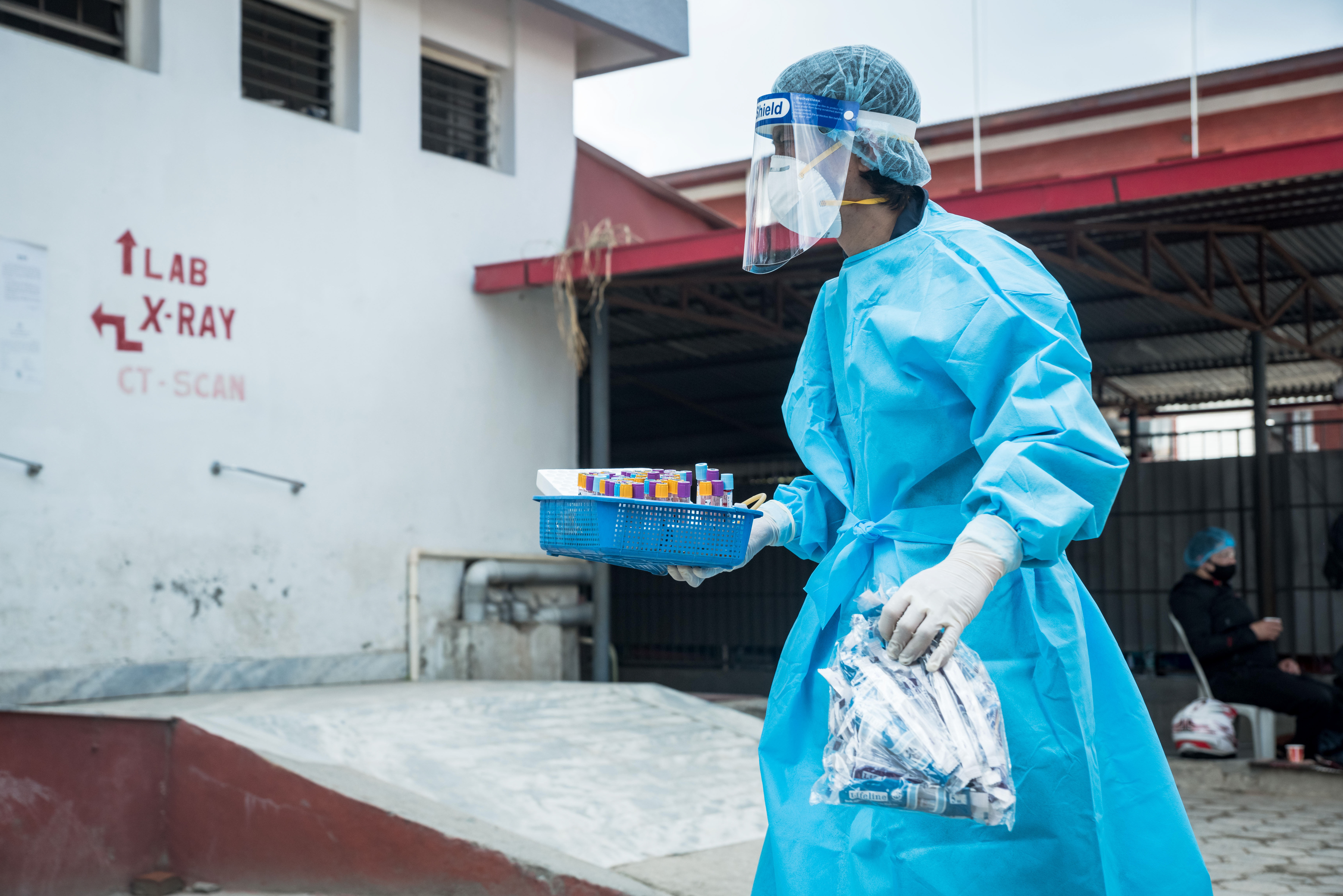The role of local government in tackling a global pandemic: A lesson from Nepal
DOI:
https://doi.org/10.21153/thl2023art1844Keywords:
Nepal, COVID-19, local leadership, WHOAbstract
This paper critically analyses the scope of leadership in Nepal at the local government level when tackling the wider impacts of COVID-19, with a particular focus on health service delivery in line with World Health Organisation (WHO) frameworks. In-depth interviews with 66 representatives from local governments (LG) in the Madhesh and Sudurpaschim provinces were conducted, along with analysis of routine data from health management information systems. We found that Maternal Child Health (MCH) services at local health institutions were largely unimpacted, stocks of essential medicine were available, and the LGs exhibited determination and capability in getting to grips with the crisis, despite inadequate knowledge and resources. Nevertheless, there was sizeable shrinkage in the utilisation of services, which triggered public health concerns of a different nature, the LGs were inadequately prepared in regards to the capacity and availability of human resources, and there were explicit gaps in terms of coordination among all three tiers of government and a lack of role clarity that delayed the response to the pandemic at the local level. Our recommendations include continued investment in local MCH services, capacity building for local leaders with a focus on human resource management in emergency contexts, and the simplification of public procurement processes, particularly during crises, enabling LGs and other local actors to expediate procurement and improve response times.
Downloads
References
Berman, P., & Bitran, R. (2011). The World Bank. Health Systems Analysis for Better Health System Strengthening. The World Bank
CRISIS24. (2020, March 25). Nepal: Government announces nationwide lockdown from March 24-31 /update 4. Https://Crisis24.Garda.Com/Alerts/2020/03/Nepal-Government-Announces-Nationwide-Lockdown-from-March-24-31-Update-4.
Dangal, R. (n.d.). Country Profile: Nepal 1 Disaster Risk Management: Policies and Practices in Nepal. Asian Disaster Reduction Center
Ferrara, P., & Albano, L. (2020). COVID-19 and healthcare systems: What should we do next? Public Health, 185, 1–2. https://doi.org/10.1016/j.puhe.2020.05.014
Government of Nepal. (2015). Nepal’s Constitution of Nepal 2015. Government of Nepal.
Government of Nepal Ministry of Health and Population. (2022). Health Sector Response to COVID-19 Pandemic in Nepal. Government of Nepal
Guttmacher Institute and CREHPA. (2017). Abortion and Unintended Pregnancy in Nepal. https://www.guttmacher.org/
Mathema, S. (n.d.). Perspective The Impact of COVID-19 on Immunization Services. Med. Coll, 8(1). https://doi.org/10.22502/jlmc.v8i1.366
Ministry of Finance. (2021). Budget Speech of Fiscal Year 2020/21. Government of Nepal
Ministry of Finance. (2020). Budget Speech of Fiscal Year 2019/20. Government of Nepal
Ministry of Health and Population. (2020). CICT_Facilitators_guide_revised_new. Government of Nepal
Ministry of Health and Population (MoHP), N. E. and I. I. Inc. (2017). Nepal Demographic and Health Survey 2016. Government of Nepal
Shrestha, N., Mishra, S. R., Ghimire, S., Gyawali, B., Marahatta, S. B., Maskey, S., Baral, S., Shrestha, N., Yadav, R., Pokhrel, S., & Adhikari, B. (2021). Health system preparedness for COVID-19 and its impacts on frontline health care workers in Nepal: A qualitative study among frontline healthcare workers and policymakers. Disaster Medicine and Public Health Preparedness. https://doi.org/10.1017/dmp.2021.204
World Health Organisation. (n.d.). nCoV outbreak is an emergency of international concern. Https://Www.Euro.Who.Int/En/Health-Topics/Health-Emergencies/International-Health-Regulations/News/News/2020/2/2019-Ncov-Outbreak-Is-an-Emergency-of-International-Concern.
World Health Organisation. (2007). Everybody’s business : strengthening health systems to improve health outcomes : WHO’s framework for action. World Health Organisation.
World Health Organisation. (2012). Strengthening health-system emergency preparedness Toolkit for assessing health-system capacity for crisis management Part 1. User manual. World Health Organisation
Worldometer. (2022a). COVID-19 CORONAVIRUS Pandemic. https://www.worldometers.info/coronavirus/
Worldometer. (2022b, December 1). COVID-19 CORONAVIRUS Pandemic. https://www.Worldometers.Info/Coronavirus/.







